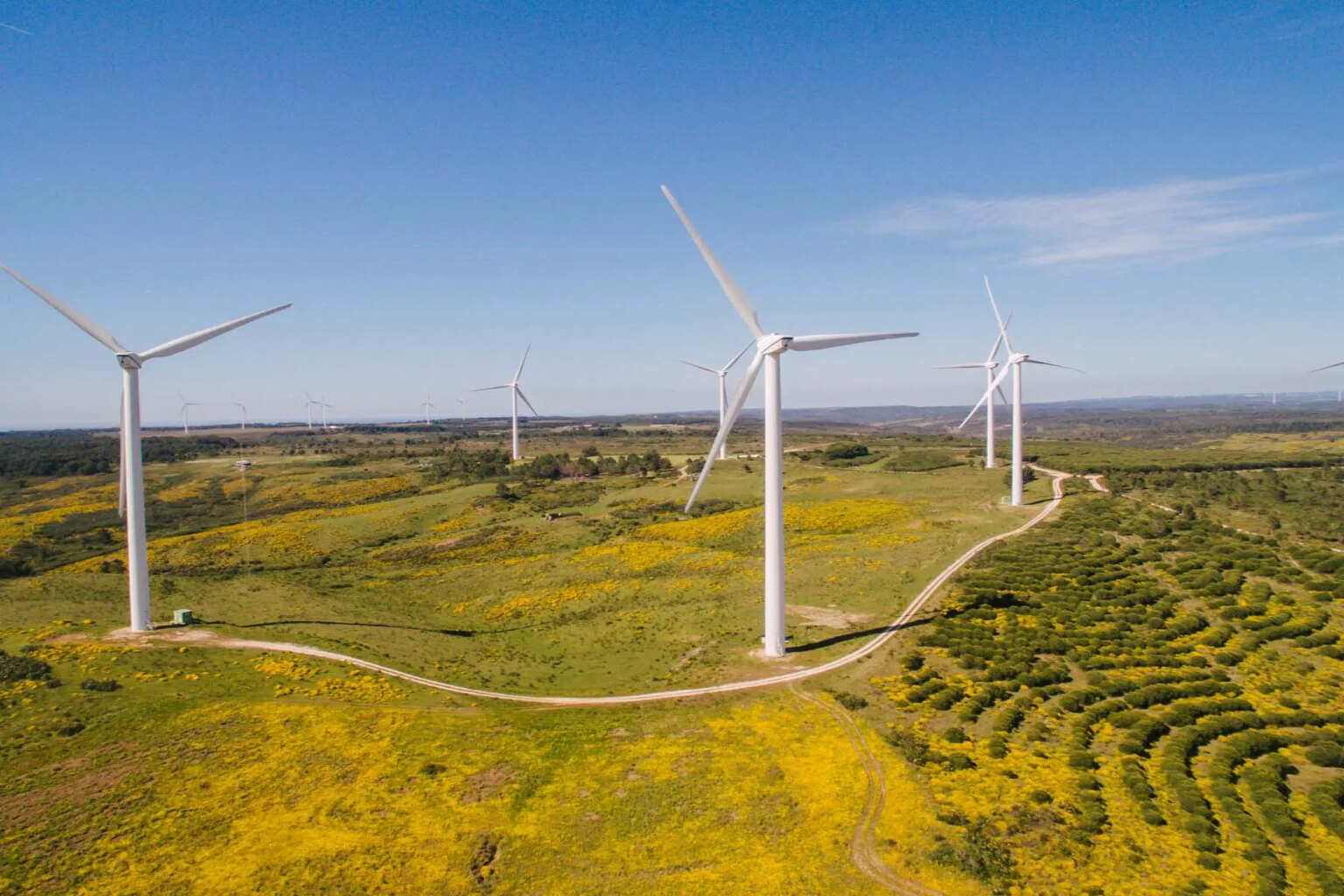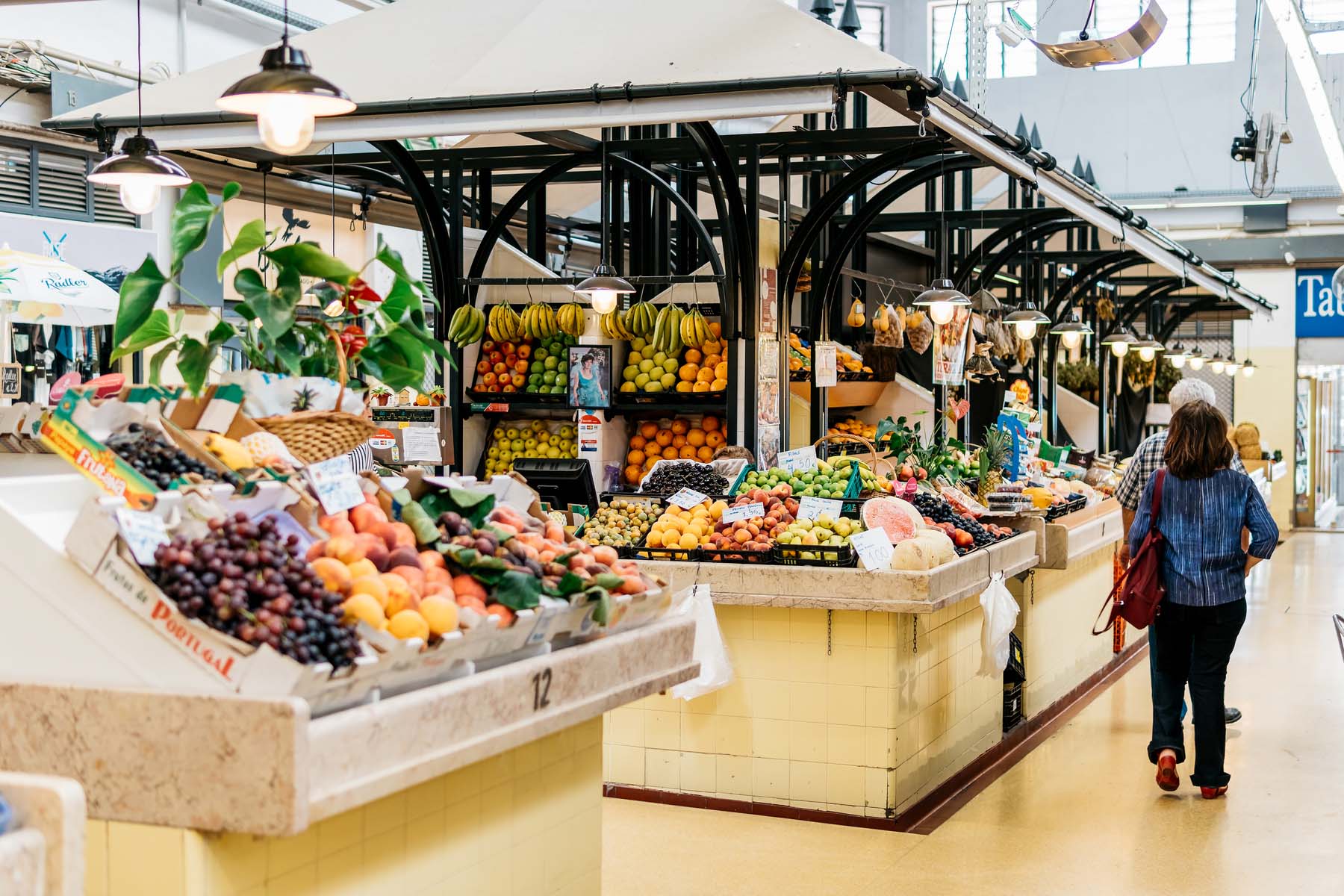Making sure you’re connected to the local utilities may be one of the first things you do during your first week in Portugal. Indeed, your new house will soon start feeling like home once you’ve set up water, gas, and electricity. You’ll also want to get connected to Portuguese internet and TV to complete your new home under the Iberian sun.
Thankfully, when it comes to setting up utilities in Portugal, the process isn’t quite as daunting as it may sound. There are a variety of different companies and tariffs to choose from, including green electricity and more. Whether you’re relocating to the Algarve or Aveiro, this helpful guide provides information on the following:
Utilities in Portugal
If you’re a new arrival in Portugal, it’s a good idea to familiarize yourself with the local utility market before setting up your home. This will help you make the right choices when choosing a supplier for you and your family. Thankfully, you’ll be happy to know that the local Portuguese utility market is easy enough to get your head around. Indeed, you’ll be able to plug in and get going before you know it.
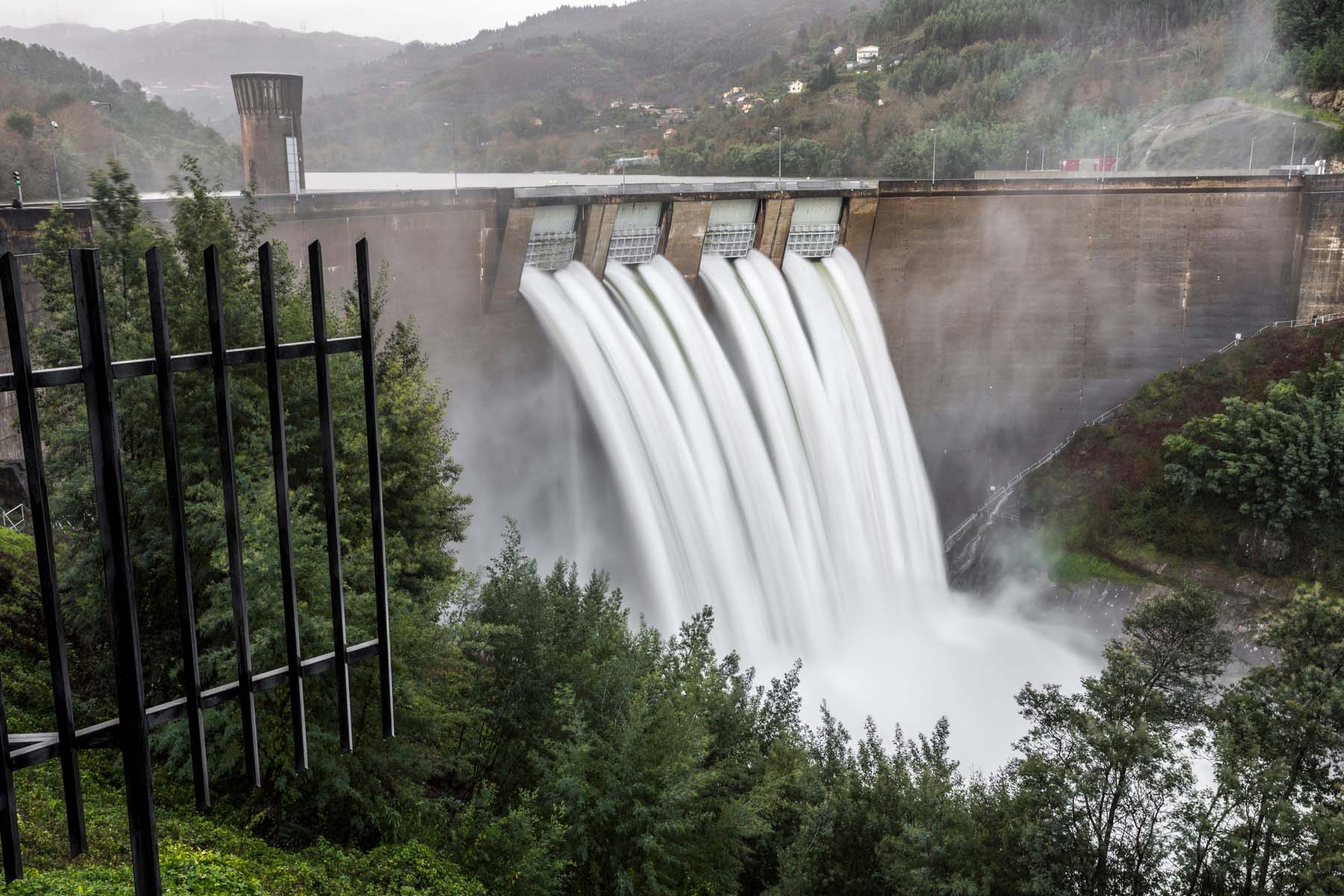
As in many other European countries, the Portuguese utility market is liberalized. This means that you can choose your electricity and gas provider; although be aware that your choice may be limited by your circumstances, such as location. Water is provided and operated at local levels through municipal companies, and you are unable to choose your water provider. These companies can be either publicly or privately run, although they will typically operate in the same manner.
Getting connected in a new home
Setting up your home utilities will probably be one of the first things you do during your first week in this spectacular country. However, what you need to do will largely depend on your individual circumstances. For example, the process can differ depending on whether you’re buying, renting long-term, or simply staying in the country for a short period of time. Things can also vary across the country, due to the availability of providers.
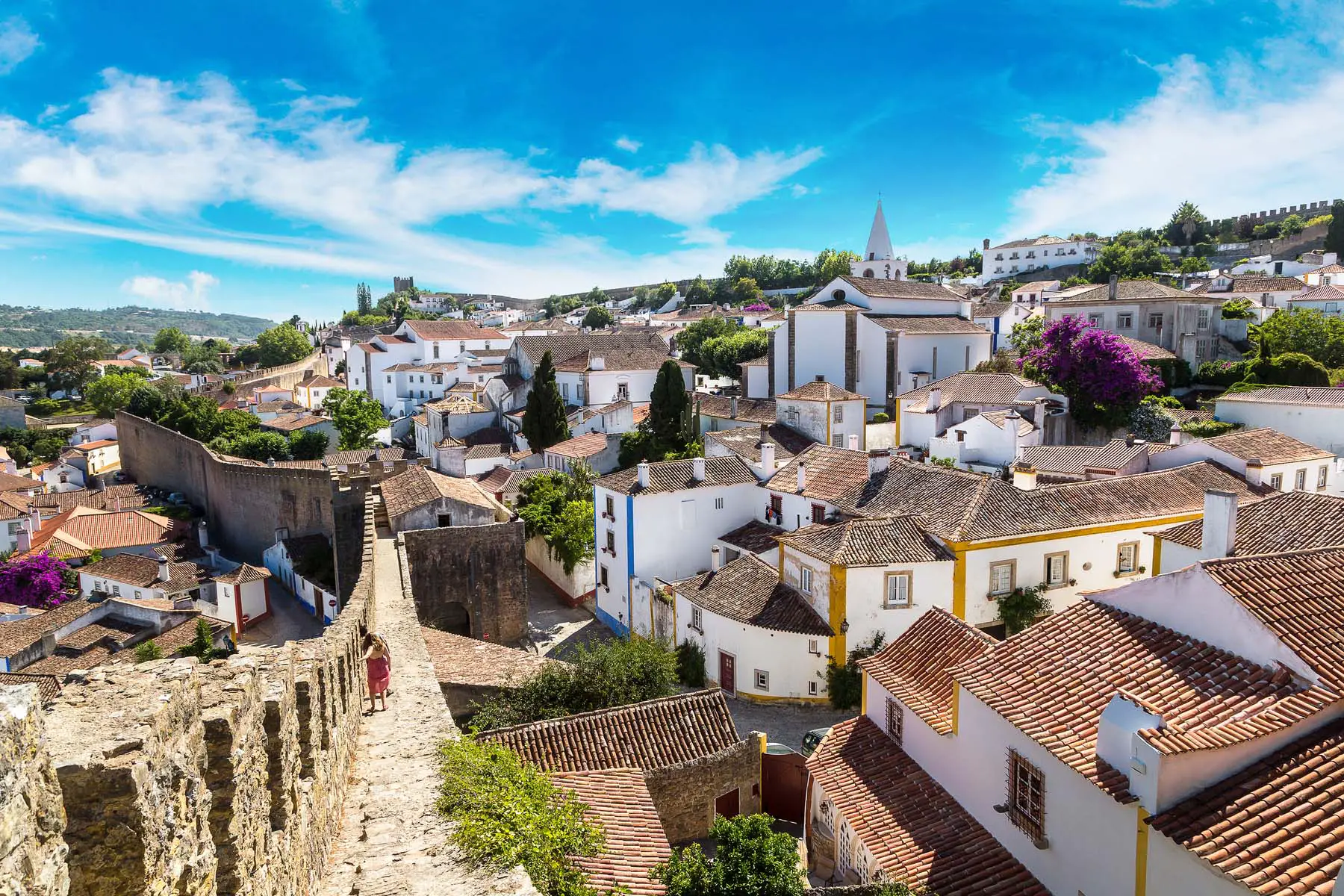
If you’re buying a property in Portugal that doesn’t have an existing connection to the local electricity grid, then you’ll need to contact the network distributor. However, this process can take a while, so be sure to contact them well ahead of time to avoid being left without power for too long. This is particularly true in more rural areas. If your property is already connected to the local network, on the other hand, then the process will be much quicker. You’ll still need to contact the energy provider and set up an account in your name, but it shouldn’t take long. You may also be able to switch suppliers, should you wish.
If you’re renting in Portugal, then your monthly rental costs may include utilities. However, they may not, so be sure to establish what you’re actually paying for before signing a rental contract. If utilities aren’t included, then you should be able to choose the provider. Alternatively, you can also keep the existing connections. In serviced apartments, utilities are typically included in rental costs as these are usually only used for short-term leases.
Setting up electricity and gas in Portugal
Portugal has a generally decent energy network that is accessible for homes and businesses throughout the country. However, when compared to other European countries, energy costs in Portugal can be quite high. This is largely due to high taxes, which can quickly inflate your monthly bills. Costs can also spike during particularly hot or cold periods, as many Portuguese homes lack centralized heating and cooling systems. Newer homes, on the other hand, are typically better insulated and equipped with the latest appliances, ensuring less energy is lost or wasted.
Energy options in Portugal
The Portuguese energy sector is liberalized, meaning that you are typically free to choose the electricity (luz) provider of your choice when setting up your new home. However, this choice is a fairly recent development in Portugal. As such, many households in the country are still supplied by EDP, the former state operator. This is still seen as the ‘default supplier’ by many. To ensure you find the best deal for you and your usage, you’ll probably need to shop around. As well as having a range of suppliers to choose from, you also have a range of tariffs, so be prepared for some research.
Generally speaking, gas (gas) is not as common in Portugal as in other European countries. Indeed, many households don’t use gas at all, and many don’t have a connection to the country’s mains gas (gas domicilio) network. This is often the case in more rural areas and in the country’s island communities. However, you can still enjoy cooking on gas in these areas by using bottled gas (botijas) or outdoor tanks (contentores de gas). Bottled gas is available at most fuel stations and larger supermarkets and you’ll need to pay a deposit for your first bottle. There are also delivery services operating throughout the country.
Energy suppliers in Portugal
As the Portuguese energy market is liberalized, you can typically choose the provider that meets your needs, depending on where you live. You’ll also have options when it comes to the energy mix: electricity, gas, or a mixture of the two. However, be aware that not all providers offer both types of energy. You will also have the option of choosing a tariff that suits your needs and budget. While this can seem confusing to new arrivals, a small amount of research around your options can go a long way in helping you make the best choice. This can also help you save money in the long run.
Portuguese energy companies include:
- EDP
- Gold Energy
- LUZiGAS
- Simples Energy
With an ever-growing marketplace, it can be challenging for expats to find the right supplier. However, there is also a growing number of comparison websites operating in Portugal to help out. These can give you a better idea of your options based on your individual circumstances. Comparison websites in Portugal include Comparaja and PoupaEnergia.
Green energy in Portugal
These days, it’s more important than ever to live as green as possible. If you’re looking to live sustainably, one of the first things you should do is sign up for green utilities in Portugal. In the last few decades, Portugal has invested heavily in its renewable energy production. Indeed, sustainable resources account for an increasing amount of overall energy production in the country. However, despite the endless Portuguese sunshine, it’s actually wind and hydro that generate the most energy. In fact, these two sources accounted for over 70% of all energy produced in Q1 of 2021.
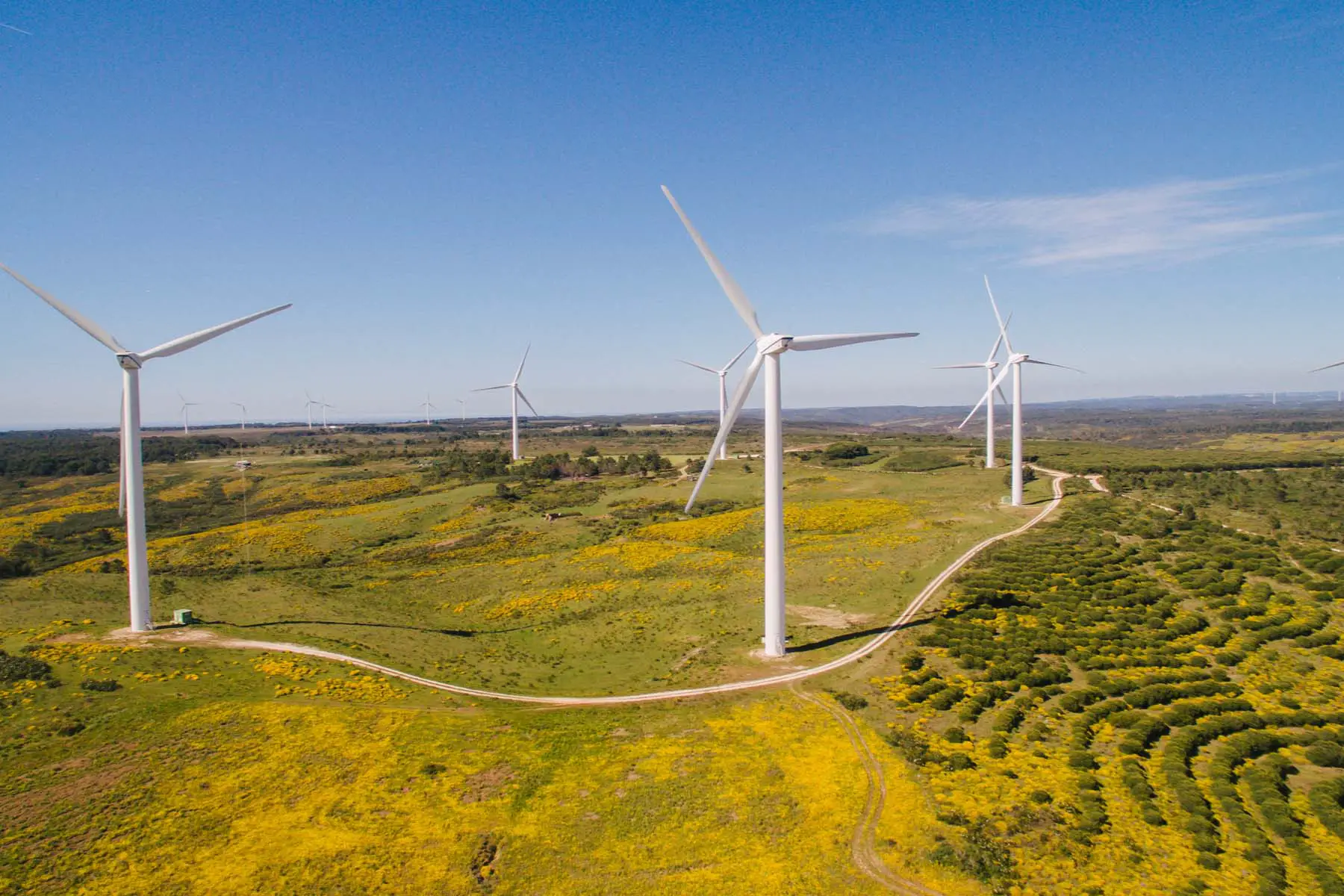
Most Portuguese energy providers offer tariffs for energy sourced from renewable sources, so you should be able to choose a green option if you wish. However, some suppliers offer exclusively green energy. Taking out a contract with one of these green-only energy suppliers will not only boost your green credentials but also help these companies further invest in green technologies. You can simply search online to see if these 100% green energy providers operate in your area.
Installing solar panels in Portugal
Another way to use green energy in your home is to install solar panels on the building. Demand for this has been growing in recent years, as more people are looking to be energy independent. Of course, whether solar panels are a good option for your household depends on your circumstances, but with installation costs decreasing and more companies entering the market, it’s never been a better time to go solar. Just be sure to do your research ahead of time to avoid being left in the shade.
Connecting your energy supply
Once you’ve decided on your Portuguese energy supplier and tariff, it’s time to sign up for a contract. Thankfully, the process is fairly straightforward, although you might need some help with language issues if your Portuguese is a little rusty. The process will largely depend on your chosen supplier. Some providers have retail outlets, meaning you can go in and speak to a representative. However, many let you sign up online or over the phone.
To complete the registration process, you’ll typically need to provide the following:
- proof of identity (passport or ID card)
- your NIF number
- details of your Portuguese bank account
- proof of address
If you are setting up a brand new connection, then you’ll need to contact the local distributor. This varies depending on where you live in the country, and the process can take a few weeks. Therefore, try and arrange this as early as possible to avoid any disappointment.
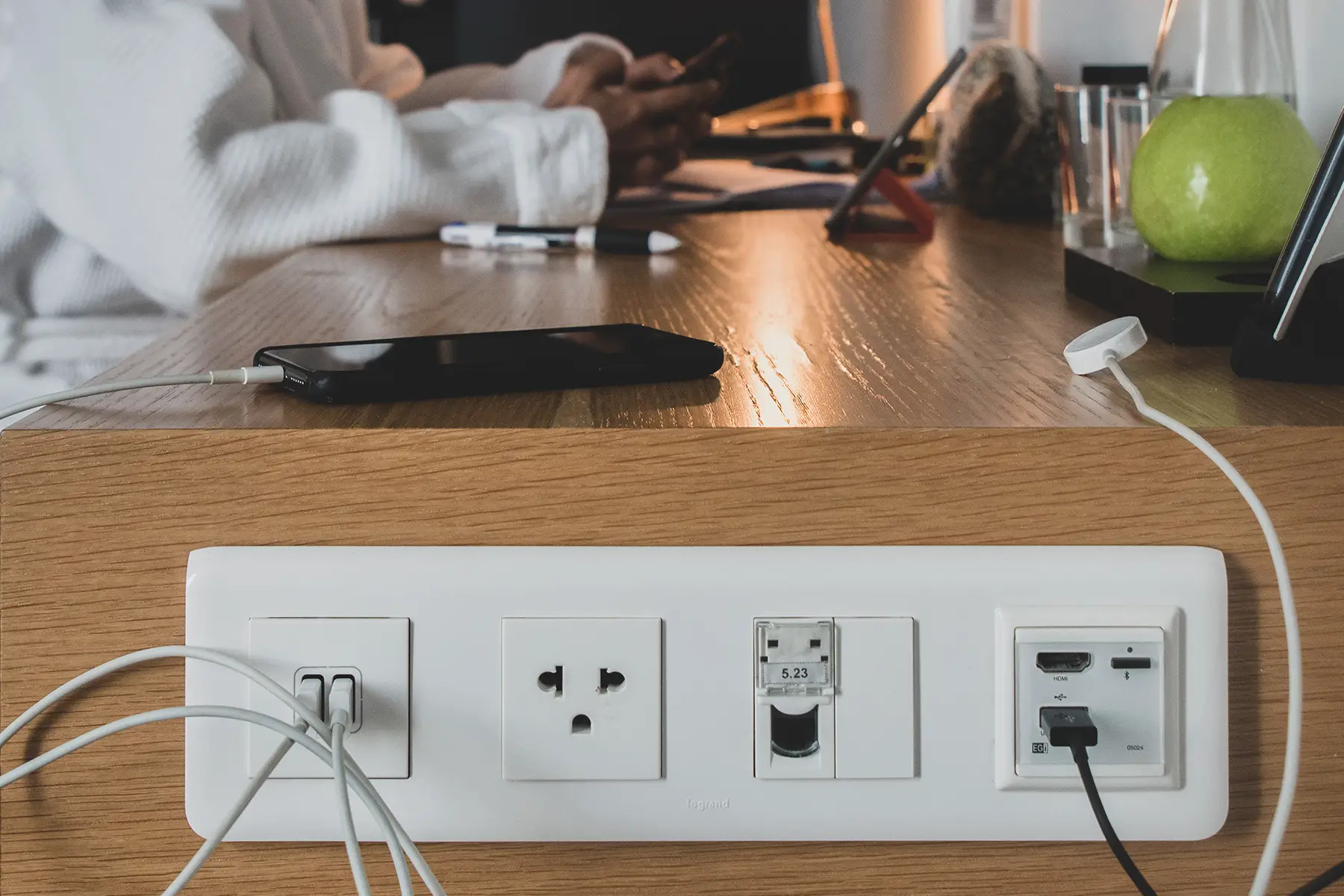
If there is an existing connection, you may be able to simply transfer the contract into your name, although you’ll typically need to provide details of the previous occupant. When moving into a new property, always take note of the meter readings too, as this will ensure that you don’t pay for any energy you haven’t used.
Paying your energy bills
When setting up utilities in Portugal, it is advisable to open a Portuguese bank account beforehand. While some energy suppliers may let you use a foreign IBAN, most will use the Multibanco system, so this will make the process a lot easier for you.
Payment is typically made via automatic collection from your bank account, and you’ll need to provide these details when signing up. Alternatively, you can pay your bills at your nearest Multibanco ATM. Payment intervals will depend on your provider, although this is usually done monthly. Most suppliers provide an annual statement should you need to pay or receive any additional fees.
Changing your energy supplier in Portugal
Should you want a cheaper tariff or be dissatisfied with your current supplier, you can easily change your provider in Portugal. However, if your existing contract has a minimum term limit, you will need to pay a fee to change the provider. If there is no minimum term limit, though, you are free to change providers with no fuss.
Once you have decided on your preferred supplier and tariff, you can simply contact your new provider and provide them with all the required information. They will then contact your previous supplier and manage the switchover process. During this time, you should have a constant supply of electricity, so you don’t need to worry about being cut off.
Making a complaint about a Portuguese energy supplier
If you have any complaints about your meter, meter readings, or energy bill, then you should contact your provider immediately. This will give your supplier plenty of time to address any issues that have arisen. They may then decide to send a technician to your home, should you have an underlying issue with your meter or connection. You can find details of your supplier’s complaint process on the company’s website.
The Entidade Reguladora dos Serviços Energéticos (ERSE) regulates energy companies in Portugal. Through the ERSE, you’ll be able to find all the information you need to file a complaint about your energy supplier. Just bear in mind that the process may take some time, and you will likely need to provide the required documents; depending on the nature of your complaint.
Portuguese voltage and power supply
Similar to other European countries, the electricity supply in Portugal is around 220 volts AC with a frequency of 50 hertz. You may come across some areas which still have the old 110-volt supply, although this is not very common. Be aware that a 220-volt current is significantly higher than in some non-European countries. Therefore, make sure to check your appliances and gadgets ahead of time to avoid any issues or incidents. If you are relocating to Portugal, then you may need to invest in some new electronics to avoid any dangerous burnouts.

Portuguese power sockets are like the rest of Europe, with two-pin plugs and sockets (Type C and the older Type F). If your appliances aren’t compatible with these sockets, then you’ll need to buy a power adapter. You can easily pick one up at an electrical retailer or supermarket. Just be aware that Portuguese homes typically have fewer power points than you may be used to. Therefore, you might want to buy a few multi-socket extensions.
Power cuts in Portugal
While power cuts are fairly uncommon in Portugal, they do still occasionally happen, so it’s best to prepare yourself for every eventuality. To avoid being left in the dark, make sure you have some candles or battery-operated lights in the cupboard just in case. If your power does go out, be sure to check your neighbors to see if they have power. If they do, it could be a problem in your own home. In this case, you should check the fuse box to see if you have accidentally tripped or blown a fuse.
In some cases, you may need to contact your energy supplier or a professional electrician. You can find many of these online or via marketplaces such as TaskRabbit. Check their credentials before hiring anyone, as some tasks require specific qualifications.
Water supply in Portugal
When sorting out your utilities in Portugal, water will be high on your list. Water is administered at a local level, under the jurisdiction of municipalities. The country operates a mixed-market system, but you cannot choose your provider and they will depend on where you live. You can find more information about your local water supply by speaking to your municipality.

Municipalities will typically have a shared water supply with other local areas. For example, Aguas de Lisboa e Vale do Tejo provides the water for the wider Lisbon area; it supplies around 3.8 million people with water, across 86 municipalities. Meanwhile, in the Algarve, 450,000 people receive water from Aguas do Algarve.
When setting up your home in Portugal, you can contact your local town hall to find information about your local supplier. You can then contact them directly to set up your account. You will typically need to provide the following information when signing up:
- proof of identity (passport or ID card)
- your NIF number
- details of your Portuguese bank account
- proof of address
If you’re moving to an apartment complex or equivalent, then your water payments will likely be included in your monthly costs. However, make sure to check this beforehand to avoid any confusion. Should your new property not have a water connection, then you will need to sort this with your local provider. You can do this through the local municipality or water provider, although this may take a while, depending on your circumstances. Be aware that in some rural areas, having a mains water connection might not be possible. Alternatives include a water tank or a borehole, however, these can be expensive, depending on your circumstances. Therefore, you should consider this before buying any property.
Paying your water bills
Water bills in Portugal are typically paid bi-monthly and you can pay in various ways, including direct debit and Multibanco ATMs. Portuguese households pay a fixed, metered amount for their water, and then extra for any usage that exceeds the limit. While bills are estimated bi-monthly, they are adjusted when a meter reading is provided, so it makes sense to take your own readings, too.
To reduce your water costs, you can buy a water saver that mixes air with water on taps, thus reducing the amount of water used. In fact, you can save the cost of fitting an apartment with water savers in just six months through lower water bills. You can simply check your nearest hardware store or search online for options.
Complaining about your water supply
If you need to speak to your local water board, you can find their details on the Aguas de Portugal website. Alternatively, you can visit a Citizens’ shop (Loja do Cidadao), which is a one-stop service that helps residents with administrative services in Portugal; such as car registration, licenses, health services, taxes, and connecting and disconnecting services. The Citizens’ shop is an initiative that seeks to minimize the bureaucracy and cut waiting times in many of Portugal’s public and private organizations.
Can you drink tap water in Portugal?
Generally speaking, yes you can drink tap water in Portugal. The country conforms to EU standards, and you should be able to drink straight from the tap. However, you should always use your own judgment when deciding whether to drink tap water. This is particularly true in more rural areas where there may not be a mains water connection. However, in built-up areas, you shouldn’t encounter any issues. Should you not like the taste of the local water, though, you might want to consider buying a filter that you can attach to your tap. These are relatively cheap and much more affordable and sustainable than buying bottled water.
Water usage in Portugal
While some areas of Portugal enjoy a surprising amount of rain, many of the southern parts of the country regularly suffer from drought. During these times, local authorities will likely restrict water consumption in order to maintain water supplies. This may include limiting the use of the public water supply for gardens or washing the car.
Useful resources
- Entidade Reguladora dos Serviços Energéticos (ERSE) – the regulator for Portuguese energy companies
